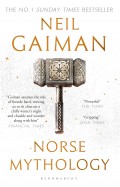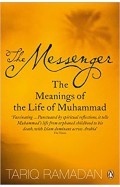Reading Judas
By: Elaine Pagels
-
Rs 742.50
- Rs 1,350.00
- 45%
You save Rs 607.50.
Due to constant currency fluctuation, prices are subject to change with or without notice.
| Book | |
| What's in the Box? | 1 x Reading Judas |
Revelations: Visions, Prophecy, and Politics in the Book of Revelation
By: Elaine Pagels
Rs 987.75 Rs 2,195.00 Ex Tax :Rs 987.75
Zubin Mehta: A Musical Journey (An Authorized Biography)
By: VOID - Bakhtiar K. Dadabhoy
Rs 472.50 Rs 1,050.00 Ex Tax :Rs 472.50
The Quest For Meaning: Developing A Philosophy Of Pluralism
By: Tariq Ramadan
Rs 1,255.50 Rs 1,395.00 Ex Tax :Rs 1,255.50
War of the Worldviews: Science vs Spirituality
By: Dr Deepak Chopra
Rs 646.75 Rs 995.00 Ex Tax :Rs 646.75
In the Shadow of Shari'ah: Islam, Islamic Law and Democracy in Pakistan
By: Matthew J Nelson
Rs 2,605.50 Rs 2,895.00 Ex Tax :Rs 2,605.50
The Messenger: The Meanings of the Life of Muhammad
By: Tariq Ramadan
Rs 2,335.50 Rs 2,595.00 Ex Tax :Rs 2,335.50
The Ismailis Their History And Doctrines 2nd
By: Farhad Daftary
Rs 581.75 Rs 895.00 Ex Tax :Rs 581.75
No recently viewed books available at the moment.
Zubin Mehta: A Musical Journey (An Authorized Biography)
By: VOID - Bakhtiar K. Dadabhoy
Rs 472.50 Rs 1,050.00 Ex Tax :Rs 472.50
Revelations: Visions, Prophecy, and Politics in the Book of Revelation
By: Elaine Pagels
Rs 987.75 Rs 2,195.00 Ex Tax :Rs 987.75














-120x187.jpg?q6)















